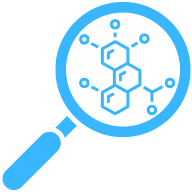Biostatistical research, a cornerstone of modern medicine and public health, is not without its ethical challenges. This blog post will delve into the ethical considerations that researchers must navigate in the field of biostatistics. We will explore the importance of maintaining integrity, ensuring privacy, and promoting transparency in this critical area of study.
Upholding Integrity in Biostatistical Research
Integrity forms the bedrock of any research, and biostatistics is no exception. Researchers must ensure that their work is honest, accurate, and free from bias. This includes not only the collection and analysis of data but also the reporting of results.
Biostatisticians often deal with sensitive health-related data. As such, they must ensure that their methods are rigorous and their results are reliable. Any manipulation or misrepresentation of data can have serious consequences, including misleading health policies or harmful medical practices.
Moreover, researchers must avoid conflicts of interest that could compromise their objectivity. This includes financial ties to pharmaceutical companies or other entities that could benefit from certain research outcomes. Transparency about potential conflicts of interest is crucial to maintaining trust in the research process.
Ensuring Privacy and Confidentiality
Privacy and confidentiality are paramount in biostatistical research. Researchers often handle sensitive health data, which must be protected to maintain the trust of participants and the public.
Researchers must ensure that they collect, store, and use data in a way that respects the privacy of individuals. This includes obtaining informed consent from participants, anonymizing data, and implementing robust data security measures.
In addition, researchers must be mindful of the potential for data misuse. Even anonymized data can sometimes be re-identified, posing a risk to privacy. Therefore, researchers must stay abreast of the latest techniques and technologies for protecting data privacy.
Promoting Transparency and Reproducibility
Transparency and reproducibility are key to ethical biostatistical research. Researchers should make their methods, data, and results accessible to others, allowing their work to be scrutinized and replicated.
This includes providing detailed descriptions of research methods, sharing data and code where possible, and publishing results in a transparent and unbiased manner. Researchers should also be open to criticism and willing to correct errors in their work.
However, promoting transparency and reproducibility is not without challenges. Researchers must balance the need for openness with the need to protect privacy and intellectual property. They must also navigate the pressures of the publish-or-perish culture, which can sometimes incentivize less transparent practices.
Navigating Ethical Considerations in Collaborative Research
Collaborative research, which is increasingly common in biostatistics, brings its own ethical considerations. Researchers must navigate issues of authorship, data sharing, and responsibility for research outcomes.
In collaborative projects, decisions about authorship can be complex. Researchers must ensure that all contributors are appropriately recognized and that the order of authors reflects their contributions. They must also ensure that all authors approve the final manuscript and take responsibility for its content.
Data sharing in collaborative research can also be challenging. Researchers must balance the benefits of data sharing, such as increased transparency and reproducibility, with the need to protect privacy and intellectual property. They must also navigate differing data sharing policies and practices across institutions and countries.
Ethical Considerations in the Use of Biostatistical Techniques
The use of biostatistical techniques also involves ethical considerations. Researchers must ensure that their techniques are appropriate for their data and research questions, and that they do not mislead or misinterpret their results.
For example, researchers must avoid "p-hacking," or the practice of manipulating data or analyses to achieve statistically significant results. They must also avoid "overfitting," or the use of overly complex models that fit the data too closely and may not generalize well to new data.
In addition, researchers must be mindful of the limitations of their techniques and the assumptions underlying them. They should not overstate the significance or applicability of their results, and they should be transparent about any uncertainties or limitations.
Ethical Training and Education in Biostatistics
Finally, ethical training and education are crucial in biostatistics. Researchers must be equipped with the knowledge and skills to navigate the ethical challenges of their work.
This includes training in research ethics, data privacy, and responsible conduct of research. It also includes education about the ethical implications of different biostatistical techniques and practices.
However, ethical training and education should not be a one-time event. Researchers must continually update their knowledge and skills as new ethical issues and challenges emerge in the rapidly evolving field of biostatistics.
Final Thoughts on Ethical Considerations in Biostatistical Research
Biostatistical research is fraught with ethical considerations that researchers must navigate. Upholding integrity, ensuring privacy, promoting transparency, navigating collaborative research, using biostatistical techniques responsibly, and receiving ethical training are all crucial. By addressing these ethical considerations, researchers can contribute to the advancement of biostatistics in a way that respects the rights and interests of all stakeholders.

